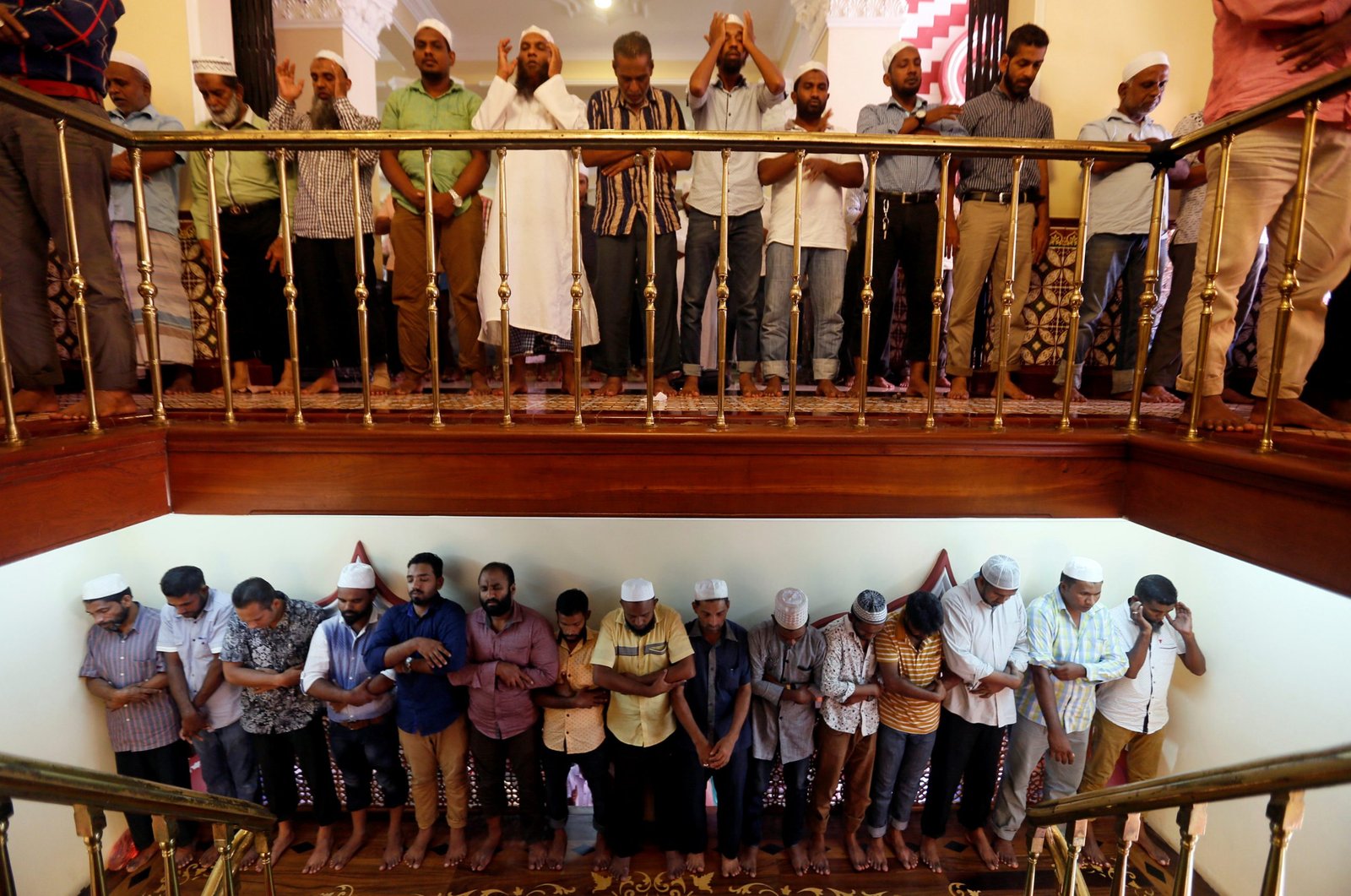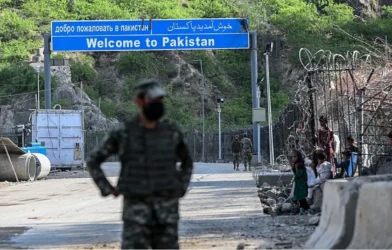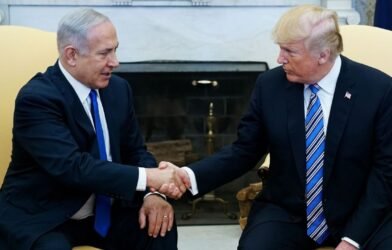Subtotal $0.00
India and the Relationship with Israel
The importance of Palestine to India
The Future of the Relationship
Calls for a visit from the Indian Prime Minister Narendra Modi For Ramallah There are many comparisons, most notably what has been and what is in Indian political behavior toward Palestine.
The first visit by an Indian prime minister to Palestine - as promoted by the Indian media - was preceded by a visit by the former prime minister Jawaharlal Nehru For Gaza In 1960, to visit the emergency force of the to the United Nations (UNEF), which was then headed by Indian General RS Gainey.
Upon his return, Nehru told the Indian parliament how he almost lost his life when his plane was attacked by Israeli fighter jets, because his visit to Gaza had angered Israel. Israel then.
This is one of the reasons why the India Diplomatic relations with Israel were only established the year after Rajiv's death. Gandhi in a suicide bombing in May 1991, so the local press interpreted the Indian Congress Party leader's boycott Rahul Gandhi Visit Benjamin Netanyahu last month to India as personal and patriotic.
India and the Relationship with Israel
Of course, the current Indian government views the relationship with Israel from a more pragmatic angle, as Netanyahu's visit to India came in the context of the growing development of ties between Tel Aviv and New DelhiIndian Prime Minister Narendra Modi visited Israel six months before his Israeli counterpart visited India.
However, Modi did not follow the example of former Indian President Pranab Mukherjee in 2015 or Indian diplomats, who used to pair a visit to Tel Aviv with a visit to Ramallah, as an expression that India's interests with Israel do not conflict with its principled support for the Palestinian right, which was then known in the Indian media as "separating the tracks". To emphasize this position, Modi is visiting Ramallah via Oman without going through Tel Aviv.
| “ Netanyahu's visit to India came in the context of the growing development of relations between Tel Aviv and New Delhi, as Indian Prime Minister Narendra Modi visited Israel six months before his Israeli counterpart visited India “ |
The Palestinians seem to realize that since the collapse of USSRand the fading role of Non-Aligned Organization of which India was a founding member, India's external role has declined and it is seen as an economic giant and a country with only regional influence, while international influence - especially in the Middle East - is almost exclusively the preserve of United States of America.
However, given their crisis with the United States, the Palestinians do not want to abandon India because such a policy could further India's slide toward Israel, from which the Palestinians would gain little benefit.
India's political stance on the Palestinian issue is based on a belief in the need for a peaceful settlement For conflict Israel and the Palestinians, so that there are two states (Israel and Palestine) living side by side in peace. This position is no different from that of most European countries and much of the rest of the world, although it is difficult - if not impossible - to implement this nowadays, as evidenced by Israeli and Palestinian statements.
Interestingly, Modi and Netanyahu issued a joint statement in which India supported a swift resumption of peace negotiations with Israel, even though Netanyahu and the majority of Israeli politicians and security experts continue to state that there is no Palestinian partner. Mahmoud Abbas is weak and has nothing to offer.
This means that Indian statements are nothing more than statements for media consumption, as expressed, for example, by well-known Indian journalist Seema Mustafa, who claims that there have been no Palestinian-Indian relations for a long time, as India's complete bias towards Israel cannot be covered up by the courtesies that India is keen on.
The decline in the Indian position can be seen when extrapolating the nature of the Indian support provided to the Palestinians, as we will find that it is limited and formalized and has hardly any impact on the ground, and is mainly represented by helping to establish some educational institutions in Ramallah and providing some student scholarships for dozens of Palestinian students.
India also provides annual financial support Relief and Works Agency Refugees Palestinians (UNRWA) is one and a quarter million dollar (just over one-thousandth of the organization's budget). This is certainly commendable, but it is a very limited support compared to the volume of trade between India and Israel, which amounts to about five billion dollars a year, of which one billion dollars is military equipment.
The importance of Palestine to India
India is the second most populous country in the world and one of the largest economies in the world, while Palestine is a small country under occupation, lacking sovereignty, and still without statehood.
However, India seems to be keen on this relationship and keeps claiming that its foreign policy based on balance is still in place and that nothing has changed during the UPA government. Why is India keen on this relationship that at first glance seems unnecessary?
| “ India seems keen on the relationship with Palestine, and keeps claiming that its foreign policy based on balance is still ongoing, and that nothing has changed during the era of the Indian People's Party government; so why is India keen on this relationship, which at first glance seems unnecessary? “ |
In my estimation, this is due to a number of reasons and potential dangers if India abandons the Palestinian cause and aligns itself completely with Israel:
1. India's pursuit of expansion into Africa Southern countries in general, which are post-colonial countries and are important members of the Organization for Economic Cooperation and Development (OECD).Brix". India does not want to give the impression that it has left the anti-colonial camp for the other camp, and the biggest proof of its adherence to this approach is its continued support for another people in a still-colonial situation, namely Palestine.
2- Preventing Arab and Muslim countries from going all in with PakistanThis would represent an imbalance in the delicate balance of power between them.
3. Maintaining huge historical commercial interests with the Arab world, especially Gulf Statesand not to embarrass the rulers of these countries by taking blatant positions with Israel that would be difficult for them to bear the consequences.
4. Competing with China over influence in the Arab region.
5- The desire to stabilize the Arab region - with Palestine at its heart - will have a positive impact on trade and energy prices, most of which India imports from the Arab region.Declaration
The risks that India wants to avoid by insisting on a relationship with the Palestinians are that India does not want to be perceived as an enemy of Islam, as this could lead to
1- Exposure to the external security threat posed by the jihadist movements to the Indian presence in the Arab and Islamic world, especially in the field of trade and investment, which will represent a real obstacle in this field and make it more difficult and costly.
2- This could be the straw that breaks the camel's back domestically, leading to a complete shift in the attitudes of India's Muslims - who number about two hundred million - against the Indian government, and this could develop to a level that could harm the political or security situation of the ruling party, or create an environment conducive to the growth of local extremist groups that would undermine India's hopes for prosperity and lead it into a dark tunnel of instability.
The Future of the Relationship
The rationale for these risks seems quite realistic for India given the following:
a. The socio-political situation of Muslims in India has deteriorated catastrophically, especially under the current party, which derives its power from a Hindu base and does not need the Muslim vote, unlike the Congress Party, which used to deal with Muslims as an electoral "vote bank," as the expression is commonly used in India.
B. Counter-terrorism campaigns that have targeted many young Muslims, the overwhelming majority of which have been found to be without a valid legal basis.
C. Hundreds of Muslims are extrajudicially killed every year.
| “ In the coming days, we are likely to see more formality and coldness in Indo-Palestinian relations, and perhaps a further decline while keeping the form of the relationship intact, unless there are unexpected changes in the international and regional landscape “ |
D. The chronic conflict in Kashmir and the humanitarian tragedies faced by Kashmiris.
E. Raging hostility with Pakistan, which has severed family ties on both sides and harmed human contact as well as other aspects of relations.
Allying with the Zionist entity that occupies the Al-Aqsa Mosque, one of the most important holy sites for Muslims, and has been persecuting and displacing them for more than half a century.
The most prominent characteristic of the Palestinian position today - in terms of foreign relations - is that it has become almost isolated. US President Donald Trump's announcement of recognizing Jerusalem as the capital of Israel showed the extent of Palestinian exposure, in exchange for Arab abandonment and the encroachment of the American position, which has become more Zionist than the Israeli position, and is pushing - with an almost open Arab partnership - to liquidate the Palestinian cause under the title "Deal of the Century."
This explains India's reassurance that its trade relationship with the United Arab Emirates ($60 billion annually) and Oman ($5 billion annually), which are on his recent itinerary for the region, will not be harmed by the rush to Israel.
Therefore, in the coming days, we are likely to see more formality and coldness in Indo-Palestinian relations, and perhaps a further decline while maintaining the form of the relationship, unless there are unexpected changes in the international and regional scene.











